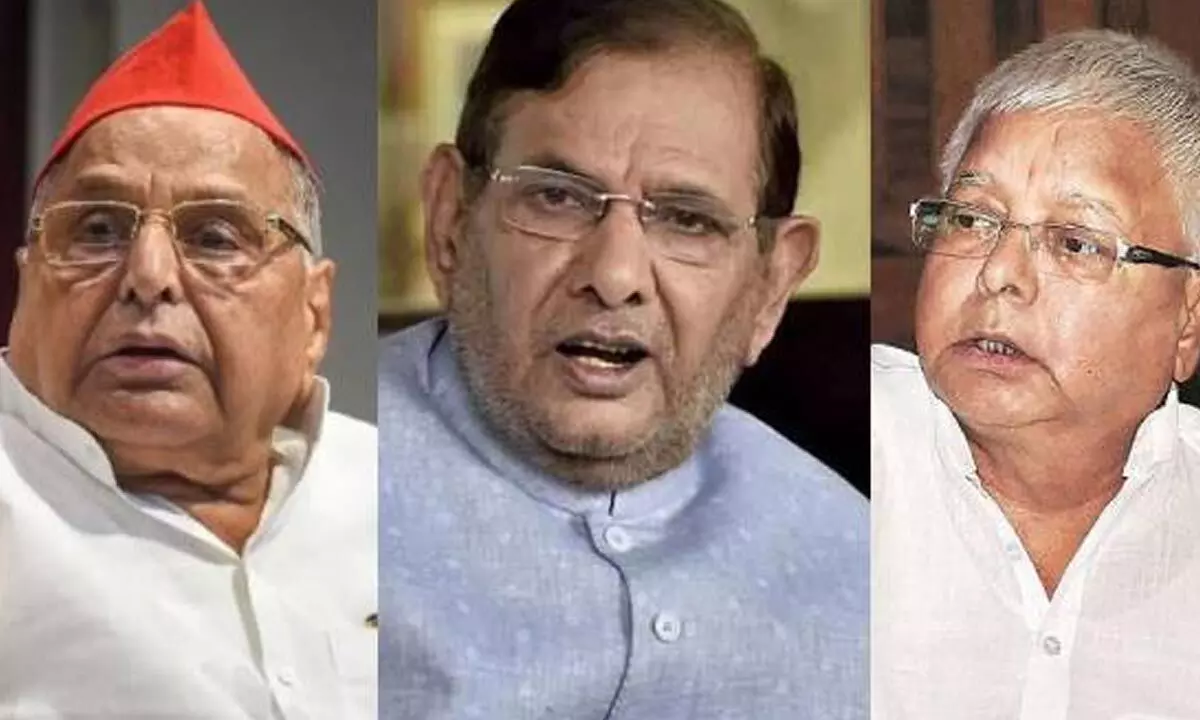Ever-elusive Women's Reservation Bill

Ever-elusive Women’s Reservation Bill
Women’s reservation bill introduced in the Lok Sabha in 1996 by then prime minister H D Deve Gowda has always been a highly contentious issue and was opposed tooth and nail by the Yadav troika and other parties like the BSP.
New Delhi: Women's reservation bill introduced in the Lok Sabha in 1996 by then prime minister H D Deve Gowda has always been a highly contentious issue and was opposed tooth and nail by the Yadav troika and other parties like the BSP.
When the NDA government led by Atal Bihari Vajpayee was in power, the BJP accepted that it had failed to pass the bill because of the stiff opposition from the parties like RJD, Samajwadi Party (SP) and Sharad Yadav.
When the Congress-led UPA government came to power with the promise of passing the bill, it again found itself in a spot because of SP and RJD parties.
Both SP and RJD announced that they are withdrawing support to the UPA government over the bill. Though the government did not need their support to pass the bill, since the BJP and the Left would have voted in favour, it felt it would be in an uncomfortable, wafer-thin majority for other legislations, like the crucial Finance Bill, without the buffer of the 22 Samajwadi Party MPs and 4 RJD MPs in the Lok Sabha.
Mulayam Singh Yadav and Lalu Prasad Yadav said they oppose the women's bill because it does not protect the interests of minorities and other backward castes.
"The bill reserves 33% seats for women in Parliament and in state Assemblies. "Reservation should be for Muslims and Dalits," said Mulayam Singh Yadav.
"The government is trying to force the bill upon us. The Congress does not listen to anyone. The bill must bring the Asli Bharat forward...the Congress is leaving women and Muslims behind," said Lalu. He even vowed in the Lok Sabha once that he would end his life to prevent the passage of the bill without a quota for Dalits and backward castes.
The BSP also opposed the bill.
The UPA government was in a huddle on what next steps should be. Despite consultations and confabulations, then prime minister Manmohan Singh, Finance Minister Pranab Mukherjee and Parliamentary affairs minister P K Bansal failed to find a solution and bring about a consensus.
On May 16, 1997, Sharad Yadav said in the Lok Sabha, "Kaun mahila hai, kaun nahin hai, keval par kati mahila bhar nahin rahne denge (Who is a woman, who is not, only short-haired women won't be allowed)." His argument was that women with short hair — to him a euphemism for privileged women — would dominate the legislature if the bill were passed.
In 2010 and later, when it came up for discussion in the following years, Mulayam Singh vehemently opposed the bill. "It is not meant for rural women. It does not help the rural women and it does not benefit the rural women. It only benefits the women of the affluent class. Rural women are not attractive as their counterparts," he added.
When the bill was tabled in the Rajya Sabha for approval, Mulayam Singh had made a similar remark: "The women reservation bill, if passed in present format, would provoke young men to whistle in Parliament."
Unless these parties come forward with their present stand, the issue of women reservation would continue to be in cold storage and will be used as a political weapon by the Opposition and the ruling party as well.








